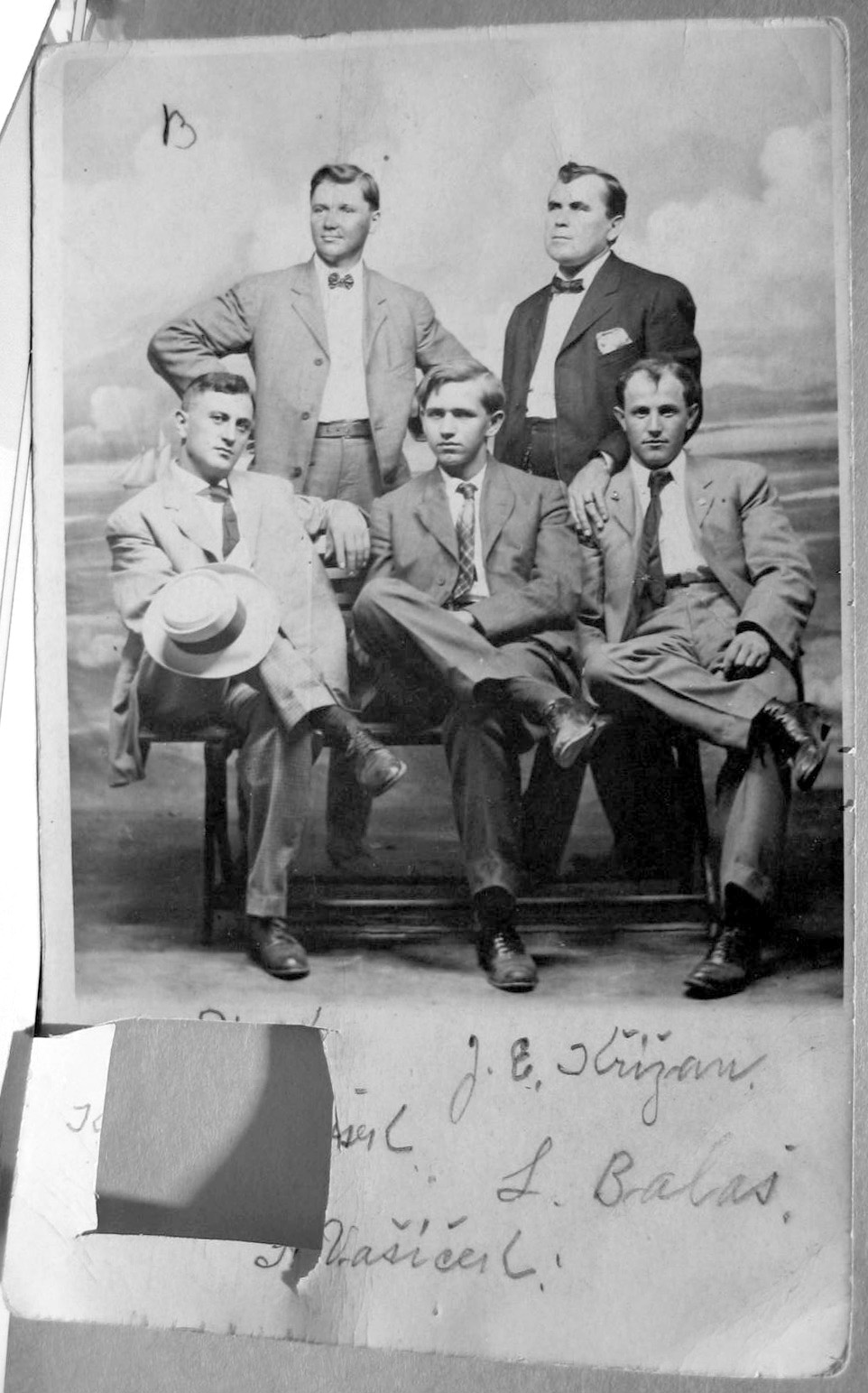I am learning Czech, and this is a translated cross-post from my language learning blog here.

Děda Joe
Grandpa Joe
Joe a Anežka
Joe and Agnes
My great-great-grandpa Josef Jan Vasicek immigrated to Texas when he was 16 years old.
He was the youngest son of the Vasicek’s.
And he never saw his parents again after he left. I think that that was very sad.
Because he was an early immigrant, and he was also an entrepreneur, he hired other Czechs. Some stories have still remained about how he took advantage of them, and about how they were clueless, ignorant immigrants.
Grandpa Joe said, “Put some water in the car.”
So…they poured water on the seats, and not in the radiator.
Grandpa Joe said, “Plant them a hoe’s length apart.”
So they did. The entire length of the hoe. Not the length of its head.
When they all sat down to dinner together, Grandpa Joe’s wife (grandma Agnes Stefek from Trojanovice 281) said, “Jezte, máme plenty!”
But they didn’t eat anything, just waited, watched, waited, and watched. It seems they were waiting for the mysterious “plenty” to appear.
These stories remain in our family culture. But what interests (and also deeply saddens) me, is to see with my own eyes the demise of the Czech language. Honestly, what I always heard were the words:
“Estcha máma plenty.” It was through writing this piece that I understood that it wasn’t ever “estcha” or “ještě” but “jezte”, 2nd person plural imperative for “eat!”
The Czech language is not going to prevent me from the understanding of my Czech ancestors which I crave. I would sacrifice almost anything in order to speak it.
I often feel as if my personality is just a pile of awkwardness. But truly, I would give up all of my pride for this dream, including all my personal failures, include my awkwardness. I hope that one day I will meet others with the same dream: to really understand our Czechs.
~~~~~~~~~~~~~~~~~~~~~~~~~~~~~~~~~~~~~~~~~~~~~~~~~~~~~~~~~~~~
Přistěhoval se můj prapradědeček Josef Jan Vašíček do Texasu, když bylo mu 16 let.
On byl nejmladší syn Vašíčkových.
A nikdy neviděl své rodiče, poté co odešel. Myslím si, že je to velmi smutné.
Protože byl časný přistěhovalec, a také byl podnikatel, proto často najal další Čechy. Trvají nějaké příběhy, jak on využil něj, a jaké byli hloupé a naivní přistěhovalci.
Děda Joe řekl: “Dejte vodu do auta.”
Takže…oni ji nalili na sedadla auta, a ne do chladiče.
Děda Joe řekl: “Zasaďte to na délku motyky od sebe.”
[Already you can see the influence of English in my grandfather’s mind: a Czech would understand this to mean the length of the hoe’s stick, not its head. But in English it is ambiguous, and from the context you can tell it meant the head.]
Takže oni se zasadili celém délku motyky.
Když spolu večeřeli, žena Dědy Joa (babička Anežka Štefková z Trojanovic 281) řekla, “Jezte, máme plenty!”
Ale nic nejedli, jen čekali, a koukali, čekali, a koukali. Zdá se, že čekali, až přijde ten tajemný “plenty.”
Ty příběhy trvají u našem rodinné kultuře. Ale co mě zajímá (a také mě mrzí), je vidět na vlastní oči rozklad českého jazyka. Upřímně, co jsem vždycky slyšela, byla slova “estcha máma plenty.” Skrze toto psaní jsem pochopila, že to není žádné “estcha” ani “ještě”; to muselo být “jezte.”
Čeština nebude mi bránit za porozumění českým předkům, po kterém toužím. Obětovala bych téměř cokoliv, abych to uměla.
Často cítím se, jako kdyby moje osobnost byla jenom hromada trapnosti. Ale opravdu, obětovala všechnu svou pýchu pro ten sen, a to zahrnuje každé osobní selhání, i moji trapnost. Doufám, že jednoho dne se setkám s dalšími lidmi, kteří mají stejný sen: pochopit naše Čechy.
